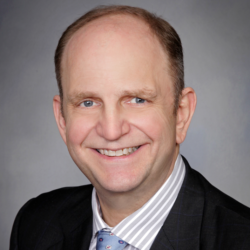Viewpoint: Disintermediation – A Cure For The Doctor-Patient Relationship
"There are several models that have successfully eliminated the intermediaries in healthcare and restored the doctor-patient relationship."
My wonderful friend, Professor Yuri Maltsev passed away last week. In his tribute to Yuri, Jeffrey Tucker describes Yuri’s view of the increasing danger of the U.S. health-care system becoming Sovietized:
“The further we move away from health care as essentially a doctor/patient relationship, with freedom of choice on all sides, and the more we allow central plans to replace on-the-ground clinical wisdom, the less it looks like quality health care and the less it contributes to public health. The Soviets already tried this path. It did not work.”
One of the core principles of traditional medical ethics is that physicians should be exclusively devoted to the best interests of their patients. This is known as “duty of care” and it requires that physicians act in the best interest of the patient who is in front of them.
Over the past several decades, the doctor/patient relationship has been severely eroded by intermediaries, or “middlemen.” Third-party payers, insurance companies, pharmacy benefit managers (PBMs), third-party administrators (TPAs), healthcare cost management companies, and Federal and state governments now dictate the terms of medical care, which treatments are covered and how much doctors are reimbursed for their services. The more healthcare intermediaries erode the doctor/patient relationship, the more patients and physicians lose the quality and personalization of care that was once the cornerstone of effective healthcare. As a result, there has been growing interest in reducing or eliminating the role of middlemen/intermediaries in healthcare to increase efficiency and improve the quality of care for patients. This process is called disintermediation.
We see it everywhere — industries are finding ways to cut out the intermediaries and bring customers closer to their products or services in an effort to reduce costs and improve services. Disintermediation unfolded in the movie rental industry when Netflix overthrew Blockbuster and in the retail industry, where Amazon and eBay disintermediated traditional retailing. Airbnb is revolutionizing the travel and lodging industry and Uber the taxi industry.
In the near future, blockchain technology may disintermediate a range of financial and credentialing industries by enabling secure and transparent transactions without the need for intermediaries such as banks, payment processors, and licensing boards. Artificial intelligence, such as ChatGPT, has the potential to disintermediate a range of industries by automating tasks that were previously performed by humans, such as customer service and education.
Healthcare is not exempt from disintermediation. Fueled by shrinking doctor reimbursement, high costs, poor access to care, low quality of care, complicated insurance systems, the increasing cost of insurance premiums, inefficiencies in the delivery of care and bureaucracy, healthcare is ripe for disintermediation. In fact, the perfect disintermediation healthcare storm is happening right now. This trend is further fueled by new technologies such as telemedicine and online health platforms.
Currently there are several models that have successfully eliminated the intermediaries in healthcare and restored the doctor-patient relationship.
Direct Primary Care (DPC): DPC is a model of healthcare delivery that eliminates the need to use insurance to access a primary care doctor. Under the DPC model, patients pay a monthly fee directly to their primary care physician for access to comprehensive medical services. DPC decreases the barriers to access a doctor, provides easy one on one communications, and price transparency. DPC restores sanity to health care. There are no more surprise medical bills. The patient is once again united with the doctor. Epiphany Health’s founding physicians, Dr. Gross and Dr. Crouch, are national leaders of the DPC movement.
Direct Pay Medicine is a similar model to DPC, but works well for specialties such as Dermatology, Rheumatology, Ophthalmology, Endocrinology and Neurology. As with DPC, Direct Pay Medicine aims to improve the doctor-patient relationship by reducing the role of intermediaries. In this model, patients pay for medical services directly, without using insurance coverage. Often patients are billed by time, and pay for services directly to their physician. Direct Pay Medicine eliminates the need for intermediaries such as insurance companies, reducing administrative costs and allowing for more personalized care. By removing the insurance middleman, patients can often receive medical services more efficiently and at a lower cost. Dr. Kathleen Brown is a pioneer and a national leader in this now popular model.
Direct Surgical and Specialty Care is a model where surgical centers and specialty care practices that exclusively accept direct payment from the patient, bypass third party payers entirely. This model offers a fully transparent price list for patients such as the Surgery Center of Oklahoma. Fees for the surgeon, anesthesiologist and facility are all included in one low price. There are no hidden costs, charges, or surprises. Founded by Dr. Keith Smith and Dr. Steve Lantier, The Surgery Center of Oklahoma is the pioneer of this model.
The future success of these and other disintermediated healthcare models will depend on building a critical mass of acceptance of patients and doctors who find these models preferable to our current healthcare system. The innovators and early adopters are already here. It is time retire the medical “middlemen” and have them go the way of Kodak, Blockbuster, Xerox, The Yellow Pages, Borders Books, Radio Shack and The Sharper Image.
Find Physicians with direct payment/cash friendly practices near you:
